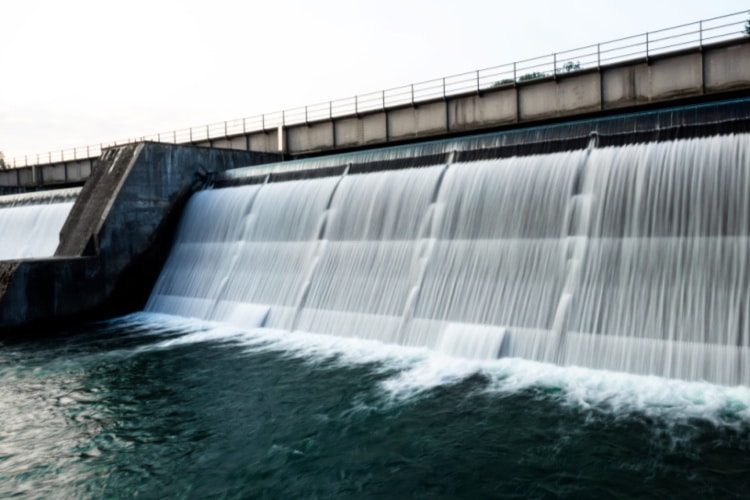Latest water quality reports by the local Texas government has confirmed Dallas tap water as safe to drink, and the EPA recognized Dallas for having one of the safest drinking water in the US.
In this article, we’ll discuss the source of Dallas tap water, the treatment process, and the contaminant levels with respect to the EPA’s allowable limit.
Dallas Water Quality Report: What is in the Water?
| Contaminant | Dallas Water levels | EPA action limit | EPA’s public health goal |
|---|---|---|---|
| Lead | Zero | 15 ppb | Zero |
| Copper | 0 to 260 ppb | 1,300 pbb | 300 ppb |
| Fluoride | 0.5 to 0.6 ppm | 2 ppm | 1 ppm |
| Total trihalomethanes | 4.7 to 18.5 ppb | 80 ppb | Zero |
| Arsenic | 0.297 ppb | 10 ppb | 0.004 ppb |
| Hexavalent Chromium | 0.275 ppb | 100 ppb | 0.02 ppb |
| Bromate | 1.23 ppb | 10 ppb | Zero |
| Total haloacetic acids | 1.3 to 15.3 ppb | 60 ppb | Zero |
Like all American cities, Dallas releases yearly water quality reports that gives insights into the tap water content. The latest Dallas City water quality report shows that there are no contaminants above the legal limits set by the Environmental Protection Agency (EPA) under the National Primary Drinking Water Regulations (NPDWRs).
One of the most common drinking water problems in the United States is lead due to old piping lines with lead components. As such, many cities such as Portland, New York City, and Boston, suffer from excessive amounts of lead in their tap water. Dallas, fortunately, doesn’t suffer this problem as the the water quality report shows no trace of lead in the water.
The only prevalent contaminants in dallas tap water are the most common ones found in municipal water, such as fluoride (added by municipal authorities all across the US for maintaining teeth health) and total trihalomethanes (also known as TTHMs, which are by-products of disinfectants like chlorine and chloramines).
For more information, we had to check the Environmental Working Group’s data (EWG) provided by the Texas Commission on Environmental Quality and EPA. This dataset gave us a closer look at the makeup of Dallas’ water while allowing us to compare results with the EWG health guidelines that coincide with the EPA’s public health goals about drinking water contaminants.
According to this dataset, there is more to the Dallas water than the city’s water quality report reveals. It shows the presence of some worrisome contaminants that are below the EPA action limit but above the EWG health guidelines and EPA public health goals:
- Arsenic
- Bromate
- Chromium
- Dichloroacetic acids
These contaminants are in non-lethal levels, but as explained by the EPA in NPDWRs (linked above), they can increase cancer risk. So you may want to take the necessary precautions, such as investing in a water filtration unit for arsenic, hexavalent chromium, or total trihalomethanes to prevent potential health risks.
Is the Water Hard or Soft?
Water hardness is determined by the quantity of calcium and magnesium minerals in the water. The tap water (water distributed by the municipal authorities) in Texas is soft, however, because the state sits atop an aquifer, the groundwater (well water) is hard, with an estimated 200 ppm hardness level. This puts texas 4th on the list of hard water states in the United States. Dallas, in particular, has a water hardness of 140 PPM.
Having hard vs soft water comes with several pros and cons. Here’s a compiled list of those pros and cons:
- Minerals in hard water are nutritional for the body.
- Hard water minerals flush out excess fat and bile through your feces.
- Calcium and magnesium relieve digestive disorders such as constipation.
- Calcium strengthens bones and teeth.
- Hard water has a better taste than soft water.
- Hard water makes your hair brittle and fragile over time.
- Minerals in hard water leave your skin dry, rough, and itchy.
- Hard water leaves spots on your dishes and causes stains on your appliances.
- Hard water corrodes and clogs pipes, which leads to a drop in water pressure in your home.
- Washing clothes in hard water makes your clothes lose color in the washing machine.
Where Dallas Gets Its Water From
Dallas primarily obtains water from the Ray Hubbard Reservoir. However, the state also sources water from Lake Tawakoni, the Elm Fork of the Trinity River, Lake Ray Roberts, Lake Lewisville, and Lake Grapevine.

How Tap Water Is Treated in Dallas
The Dallas Water Utility (DWU) uses chlorine, ammonia, and ozone, to treat and disinfect the water. Lime and iron sulfate are also added to remove all solids in the water, while fluoride is added to improve teeth health.
After disinfection with the above chemicals, the water then goes through filtration to remove sand and gravel. This is the final step in the treatment process.
Do They Have the Cleanest Tap Water?
Dallas doesn’t have the cleanest tap water in the United States, largely due to the rural areas that surround the city. However, there are no health-based violations of the Safe Drinking Water Act, so the water is safe to drink.
Thanks for your interesting article. Don’t want to use tap water for my coffee, so I use a Brita water pitcher since I live in a 40 year old building & do not have a filter in my refrigerator. Otherwise, I buy purified bottled water from Kroger for my drinking water. Just read that Brita is being sued in California!! What is the safest water pitcher system to buy?
Thanks for reading, Carla. Please check out our water pitcher reviews article to see which is going to best work for you. The Clearly Filtered pitcher is our top choice and consumers love it as it sells like hotcakes.